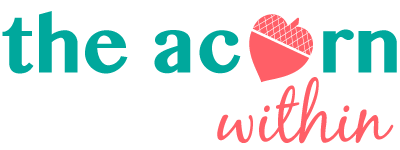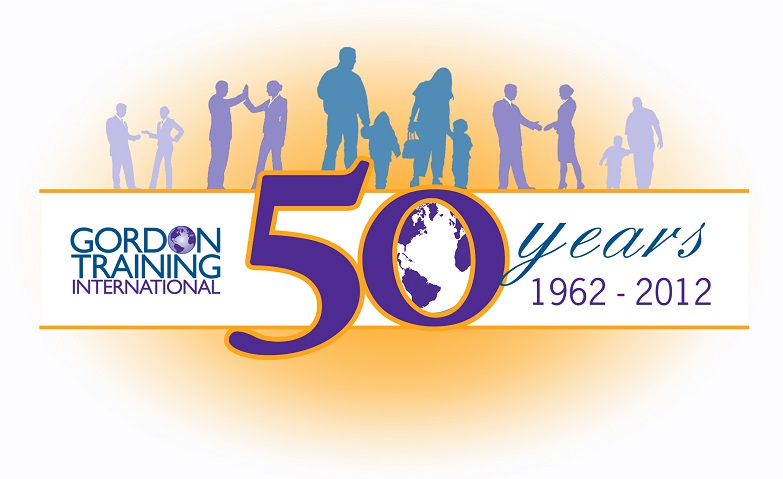Empathy in Action! How I Active Listened my 17 yo
I'm glad I went to a talk this week for parents of stressed students in Year 12, i.e. high school juniors!
After sharing tips on adolescent psychology, the two school counselors reminded us to look past behavior for underlying needs ("They're not trying to hurt you, even though their words may be acerbic.") and to insist on connection ("Under all the layers, they do still want that."). I appreciated the compassion they showed: Parenting is hard! We're not perfect! Ouch - it hurts to be on the receiving end of some of that teenage communication!
One of the challenges for us, the counselors outlined, is to let our kids "just be" in our safe presence and to help them move past the anxiety common in their high-pressured environment.
This would require empathy and to illustrate, they played Brene Brown's famous video which breaks down empathy into four parts: 1)perspective taking 2)staying out of judgment 3)recognizing others' emotions and 4)communicating understanding. I jotted down one of Brown's suggested responses: "I don't know what to say. I'm just glad you told me."
Now I'd like to share a longer example, one that blew me away even though I've been "doing" Parent Effectiveness Training for over six years.
[Some back story: My son Jake (pseudonym) intends to apply early to a US college next fall and knows that the admissions committee will base its decision on this year's grades. A couple of months ago, Jake hit a road bump in this high-stakes journey. His teenage brain, just as the counselors described, was overgeneralizing and discounting positive events as it took in the world through a biased lens.
Note: I've changed details to protect anonymity.]
I was lying on the couch reading when Jake rushed into the living room and practically stomped with anger.
Jake: "I can't believe him. No freakin' way!"
I took a deep breath to recognize that it was my son who had a problem and that I wanted to help him explore his issue and find relief (and maybe even resolution). Any opinion on his language or tone could wait for later, when there was no problem.
I turned to look up at him.
Me: "You are SUPER annoyed at someone!"
By Active Listening, I reflected back the entirety of Jake's communication as shown by his words, body language and facial expression. I refrained from adding my own message -- e.g. "Calm down please. I don't even know who you are talking about." -- which probably would have turned into a Communication Roadblock.
Jake: "It's Mr. S. He says one thing and does another. He says 'I want you to come to me with any questions any time.' Then you get there and he’s like 'You wanna talk NOW? Make an appointment.'"
Me: "You feel silenced, powerless."
Jake: "Yeah, why even say it if you don't mean it?"
Me: "His words and actions don’t match up and you don’t like that!"
Active Listening is different from agreeing. Like the counselors indicate in their handout: Their perspective is their truth -- does not mean it is "right." It means that we can respect our child's opinions if they are different from ours (empathy).
Jake: "Yeah, I feel really nervous talking to him."
Me: "Hmmm."
Short Acknowledgments show that I am with him. We don't have to Active Listen everything our child says.
Jake: "He’s been really difficult for three weeks -- we ask him questions and he says 'If you guys don’t use the resources I’ve already given you then I don’t know what more I can do.' So of course I don’t wanna ask him questions!"
Me: "You're scared he's gonna say you missed something, that you're not doing enough on your own and that it should be clear."
Jake: "Yes!!"
I just gazed at him for a moment. Silence is a powerful signifier of acceptance and welcomes the speaker to continue.
Jake: "The way he talks, he muddles things up about what it is he expects from us."
Me: "It’s really difficult to understand him and his expectations."
Jake: "And so I didn't ask him and then I messed up the assessment! All because he doesn't really want to even interact with us."
Me: "It's like walking on eggshells and it’s really bad because so much is at stake."
Jake: "I got a freakin' 6! A freakin' low 6!"
Me: "That was a big shock!"
Jake: "I worked so hard. You saw me!"
Me: "You feel heartbroken after all your efforts."
Jake: "It shouldn’t matter but it’s kind of a game and I don’t like feeling that I'm on the edge of a 7 [the equivalent of an A]. We only have four tests this year!"
Me: "It’s so hard to feel secure in his class and you really want clarity!"
Jake (breathing more freely): "I know I should have paid more attention to the rubric but . . ." (In the International Baccalaureate system, a rubric is a guide to the tasks and evaluative process for any assessed work.)
This was the beginning of a turnaround where Jake moved away from blaming (the counselors showed us another helpful Brown video on this) and toward personal accountability and understanding the teacher's point of view.
I simply nodded.
Jake: "I know he's been having a hard time too because his kid was sick and stuff."
Me: "I see."
Jake: "Um, this is a total non-sequitur but I’d really love those Ikea box shelves to store my camera stuff in."
I almost bust out laughing. Wasn't he just extremely upset? Now he's in organizing mode?
But such a total shift in energy is common!
““. . . [P]eople free themselves of troublesome feelings when they are encouraged to express them openly. Active Listening fosters this kind of catharsis. It helps children to find out exactly what they are feeling. After they express their feelings, the feelings often seem to disappear almost like magic.” ”
Me: "Sure, when I have time, I can try to get those at the Causeway Bay store."
Jake, with a bounce in his step: "Actually, I’m under control. I’m in a good position to get 7s."
This is an amazing benefit of Active Listening!
Once a person has been able to name and move through the storm of negative emotions, s/he often comes to deeper insights, a wider perspective and more creative solutions ON HIS OR HER OWN. If I had held forth, my words might have been rejected as just another sermon or attack. Here, Jake had a chance to feel accepted which then allowed him to grow because he wasn't battened down in defending himself to me.
He grinned down. I grinned up. Then, shaking my head in wonder, I went to my journal to record this remarkable conversation.
"Remarkable" because the old Catherine would not have known about this option, this conscious choice to become a "helper" to my son. I probably would have peppered him with questions: "What's wrong? Well, have you tried approaching him again? Did you ask him why you you got that score? Have you gone over the rubric - maybe you missed something?"
My anxiety would have rubbed off and Jake would have felt more tense, ended the conversation ("Stop already! That's not helpful!"), raged to a friend and maybe lost an evening's worth of work.
Instead, my approach assisted him in regaining emotional equilibrium. And -- here's the icing -- Active Listening, over time, helps individuals become better at SELF-regulation.
Not every experience with Active Listening ends like this, mind you. Jake very well may have still been distressed about his academic performance. But he would have been better positioned to problem-solve.
So this illustration came to mind when, at the end of the counselors' presentation, a parent queried, "How can we remind kids of our love and care when they only wanna focus on our expectations and boundaries?" She was asking, I think, about how to build more closeness and understanding with her child. I wanted to jump up and share, "By Active Listening more!" I hope she reads this entry.
Thank you Jake for reading and approving this post! Muuaahh!!
Credits: Peck quote (http://i.quoteaddicts.com/media/q2/649743.png





